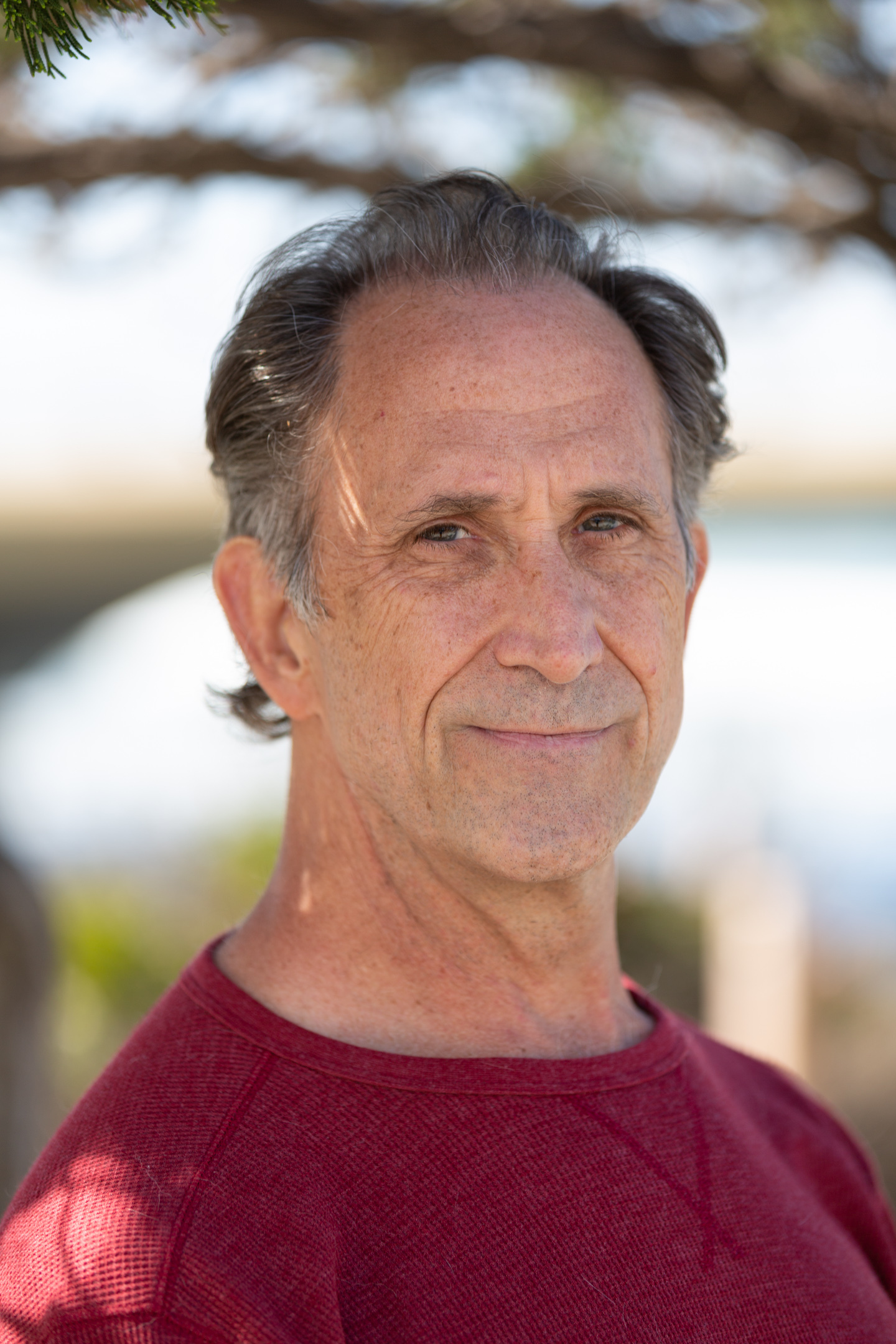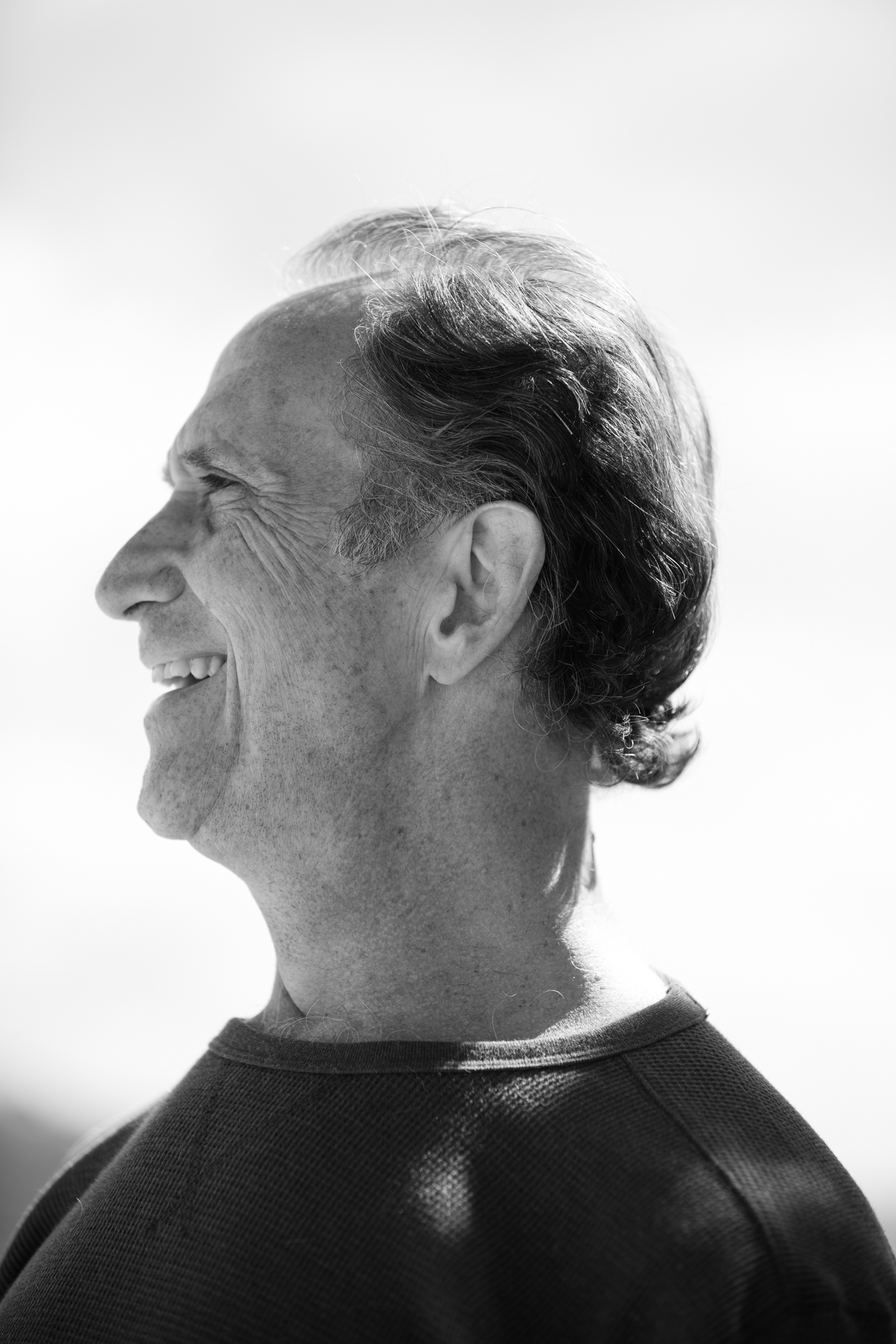We are informed by our past but, if we choose, not fixed to it. Through early life, we often are living lives either aligned with or in opposition to our parents. Then we get on the railroad tracks of career achievement and family needs, keeping our heads down and pushing through. Then, for some, comes an opportunity, around 50 years old, to reflect on where they are and where they want to go in the next 50 years. This is a golden gift, which not everyone is given. Most of us need some outside reference at this juncture if we are to clearly see who we are.
Chris Steely, former Marine, plant medicine advocate, values-first consultant, is helping men become better men. To get men of a certain age to listen to their inner voice is no easy matter. There is plenty of woo woo on that topic but, when delivered from someone with the credentials of Chris, it can break through the defended cocoons of the men he works with. As he says, “good men are hard to find,” that we guys are often beaten down by the corporate world, co-opted to a way of life that’s not aligned with who we actually are. His purpose is clear: helping others become the best versions of themselves through discovering their own missions.
Coming from a military family steeped in religion, he has taken those early life messages and become something greater, understanding that the best leaders serve those under them, rather than the other way around. In a time where “values based” is almost a corporate cliché, Chris walks the talk, inspiring others to discover their own, often camouflaged, values and giving them the courage to live by them. He is the sort of guy who has been through it, the sort of guy you want on your team in life, giving wise counsel and inspiration as to who you could become.

“Check in with yourself. Do the work. Understand who and why you ARE.”
I understand that you have a crusade, that you are a man of purpose. What is this and how did it come to you?
In 2003, after eight years of corporate subjection following four years in the active military, including the politics, mediocrity, cronyism and corruption that seems a consistent undertone of Corporate America, I was bitten by the entrepreneurial bug; left the corporate ranks and started my own business leadership development firm. I also attended my first EST spin-off personal-development experiential seminar, which included a vision quest component. I was quite idealistic, focused on helping business leaders and their teams perform better by operating from a more authentic place of service and passionate, ethical business development, expanding past the relatively “robotic” ranks of what we used to call a “corpsoration,” in which most employees don’t actually enjoy their job (I think this stat is over 80% now). My “crusade” is now about helping businesses and their leaders foster a more committed, purpose-based model of value provision, which is ultimately the true nature of business in the first place…
What would you say to people who have trouble identifying their purpose?
Check in with yourself. Do the work. Understand who and why you ARE. What inspires you? Align your passions with your vocation and serve the way you were MEANT to serve during your 100-year run on this earth.
I feel it’s each of our responsibilities to do this.
You describe yourself as a spiritualist with a theological background. What does that mean?
Before the USMC, my father was a Baptist minister. I was raised in a Christian household, and my siblings and I were brought up with the doctrine (dogma) of the Christian religion. When my mom passed when I was 20, there was a disconnect for me: how could my best friend and loving confidant no longer be here? Crossing the chasm, I learned in my heart and my gut that she was still with me (and still is). I’ve come to terms that I am truly a spiritual being on an earthly journey and have since expanded my theological views to be relatively inclusive (versus exclusive and judgmental, shifting from my dogmatic roots) and I believe each of us human beings exist in that same context during this earthly existence.
“Being a member of the world’s most elite fighting force has defined me as a warrior leader”
Why did you join the Marines?
After earning my undergraduate degree in business, I got a good job and settled into a homestead in Orlando, FL. When Desert Shield turned to Desert Storm in Iraq in 1991, I felt it was my patriotic duty to join the war effort. So I quit my job, sold my house and moved my new wife to Quantico, Virginia, where I endured Officer Candidate School (OCS) and Basic Training, earning my commission. My MOS was Logistics, which is all about managing the “business” of the Marine Corps (well aligned with my degree).
For me, the Marine Corps was a calling; my father was a Marine Corp officer before I was born, so the USMC was in my blood; I knew I was good at the military, thanks to my experience at Culver Military Academy, a secondary boarding school that I attended for my last two years of high school. Being a member of the world’s most elite fighting force has defined me as a warrior leader.

What did you learn being in the service, and being of service to others?
One thing my father always told me is that it was my responsibility to be of service… whether in business, community, church or the military; it didn’t matter to him, as long as I was being of service… he instilled an ethic of service in me as a young child. Since then, I believe my life has been a calling of service to others first. As a service member of the elite branch of the US armed forces, I learned impeccability. I learned that leadership is not about ME; it’s all about the ones I’m leading. I always made it clear to my Marines that I was there to serve THEM… I often got blank stares, as many were used to ego-based leadership, which was often about making the leader look good. I learned that the leader looks good when the leader’s subordinates perform well and are properly equipped, conditioned and positioned to do and be their best in all facets of their lives (not just the military mission). I also learned what honor, courage and commitment REALLY mean.
“I believe my life has been a calling of service to others first”
What is the corporate work you do now?
I work with business owners and their leaders to optimize productivity and results, conditioning people and teams to innovate the way they think about their business and value proposition, empowering leaders and their subordinates to do what it takes to achieve the success they seek.
What is your experience with plant-based psychoactive?
In 2015, a trusted advisor suggested I try Ayahuasca. Since then, I’ve sat in 20 shaman-led sessions, and consider plant medicine to be a sacred channel to optimal life.
What have you learned from those experiences?
Through transcendence from and reintegration back into my human capacity, I’ve gained objectivity on myself, validating who I believe I am at my core. I’ve learned that I am strong; that I am here for a divine purpose and I have a sacred responsibility as a guide and leader.
Help us draw the line between being in the military and where you are now.
The Marine Corps allowed me to experience myself as an extreme leader. After being initiated through an arduous crucible (which almost killed me), I arose as a strong, competent, capable leader of men and women who all espouse the same identity and gladiator spirit. I now carry that noble spirit into the corporate world and into entrepreneurship. I learned the value of perseverance, sacrifice, tenacity, and the wisdom that comes with dedicated teamwork and deep camaraderie.
“I choose to take holistic responsibility for all of the decisions I’ve made”
Tell us your thoughts on personal responsibility.
I think it’s an unfortunately lost paradigm… Too many people these days seem to be shirking and denying responsibility for basic facets of their lives, families and themselves.
It seems so easy to blame other factors and forces for our challenges and afflictions… I choose to take holistic responsibility for all of the decisions I’ve made and to do my best to continue to make responsible decisions.
There seems to be an epidemic of loneliness, especially with men. What are your thoughts on that?
I’ve learned that good men are hard to find. In this life, I’ve learned that men often fall prey to basic human nature, adopting a “consensus reality” which causes us to follow motives that are often not congruent with our purpose. I’ve heard it said that most men live lives of quiet desperation as we confront and often compromise our integrity in order to be overcome by those less noble motives. I have been fortunate in my life to have found pockets of good men and friends who help keep me strong and well directed as we challenge and support one another.
Who is your hero?
My personal hero (mythologically) is Superman. That persona is my life metaphor… grammatically, my last name is an adjective that describes my “great power” (and great responsibility). A hero is a person of distinguished courage or ability, admired for his brave deeds and noble qualities. In the real world, the only person who has ever embodied the key aspects of what I believe to be a hero is my father. Yet he misses the mark of what I believe TRUE heroism to be, based on his levels of self-awareness. Otherwise, for a popular persona who epitomizes my personal hero archetype in the real world, it’s probably Richard Branson.
You are having some issues with your hip. How are you managing your fitness talking that into account?
Daily, no-impact cardio (elliptical, stairs, swimming). Regular resistance training, including squats. Fueling my body with high quality food, supplements and nutraceuticals that are designed to optimize my body chemistry and mitigate the effects of osteoarthritis. I’ve got a hip replacement procedure scheduled for this summer. For my workout regimen, I’m doing daily, no-impact cardio (elliptical, stairs, swimming, rowing machine) for 20 to 30 mins, combined with regular resistance training, including squats to keep the leg muscles and hip flexors strong.
What are the 3 non-negotiables your life?
- Staying true to my values (family, character, morality, integrity)
- Staying fit (physically, mentally, emotionally)
- Being congruent with what I understand my purpose to be
Chris Steely
Managing Director
GPS Business Group
US: +1 702 327 9545
Email: csteely@gpsbusinessgroup.com
Skype: Chris.Steely
LEAVE A REPLY
The ideas expressed here are solely the opinions of the author and are not researched or verified by AGEIST LLC, or anyone associated with AGEIST LLC. This material should not be construed as medical advice or recommendation, it is for informational use only. We encourage all readers to discuss with your qualified practitioners the relevance of the application of any of these ideas to your life. The recommendations contained herein are not intended to diagnose, treat, cure or prevent any disease. You should always consult your physician or other qualified health provider before starting any new treatment or stopping any treatment that has been prescribed for you by your physician or other qualified health provider. Please call your doctor or 911 immediately if you think you may have a medical or psychiatric emergency.
AUTHOR

We will never sell or give your email to others. Get special info on Diet, Exercise, Sleep and Longevity.

Did you mean 67?
Great questions, David, and great answers, Chris! I’m inspired by you both.